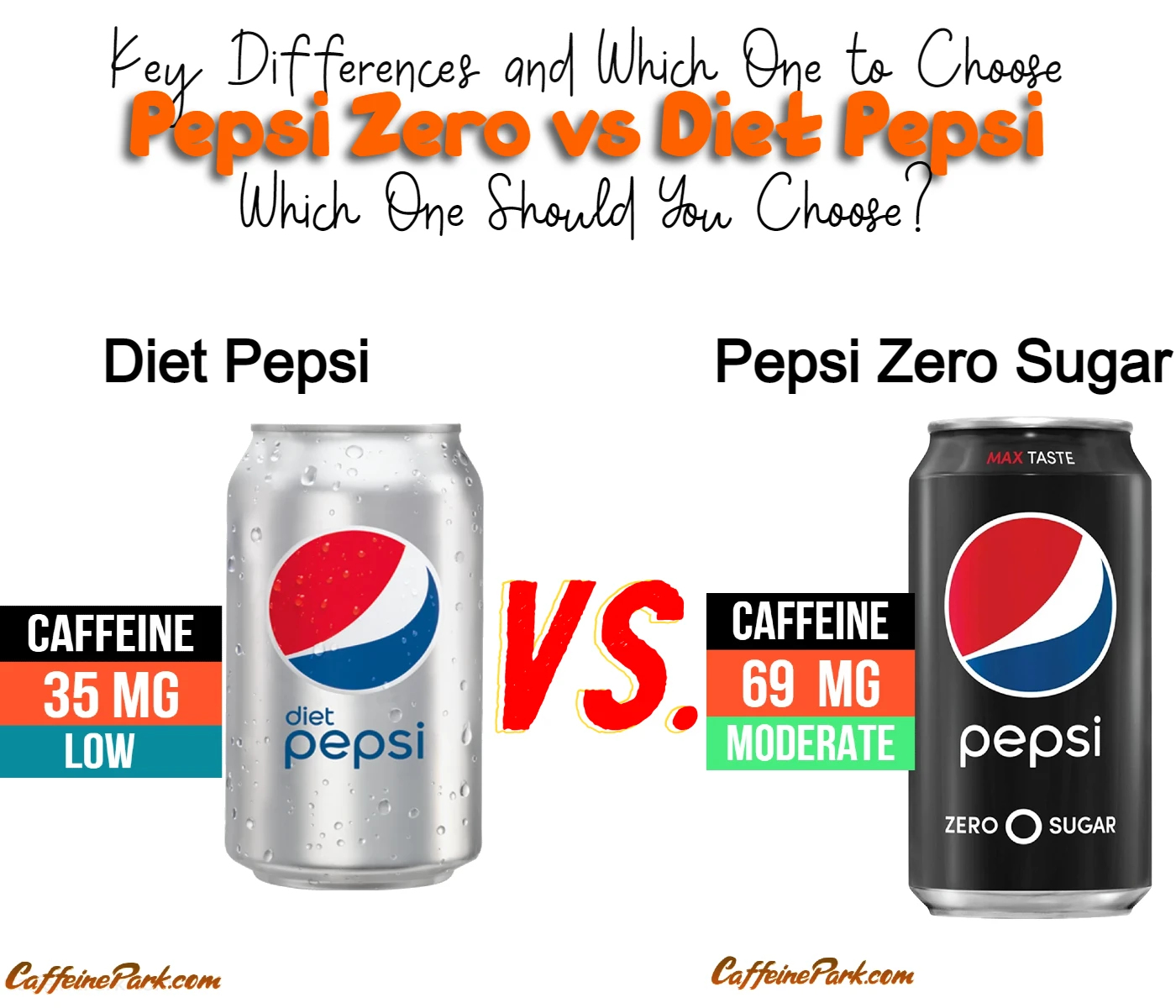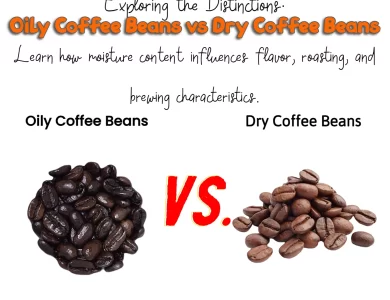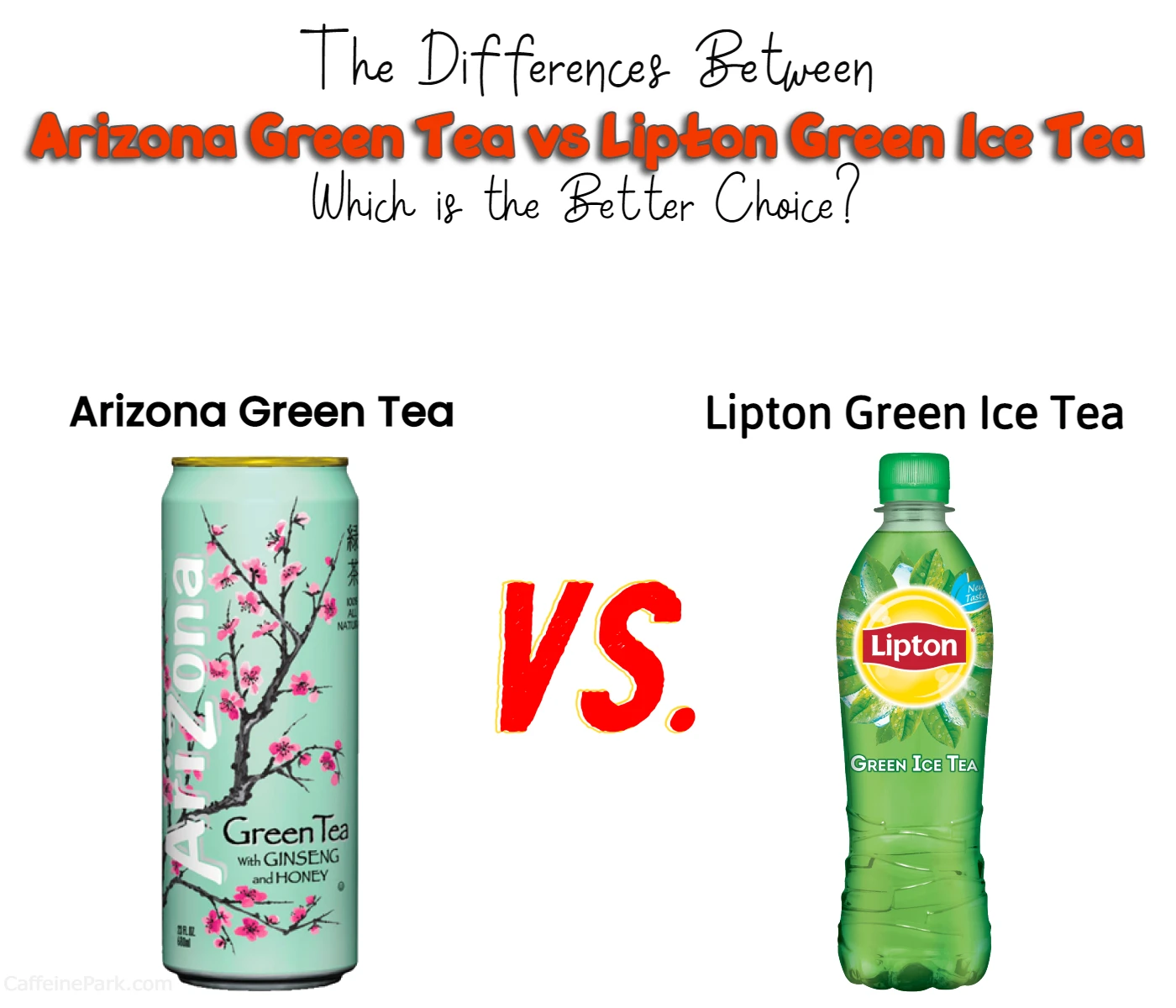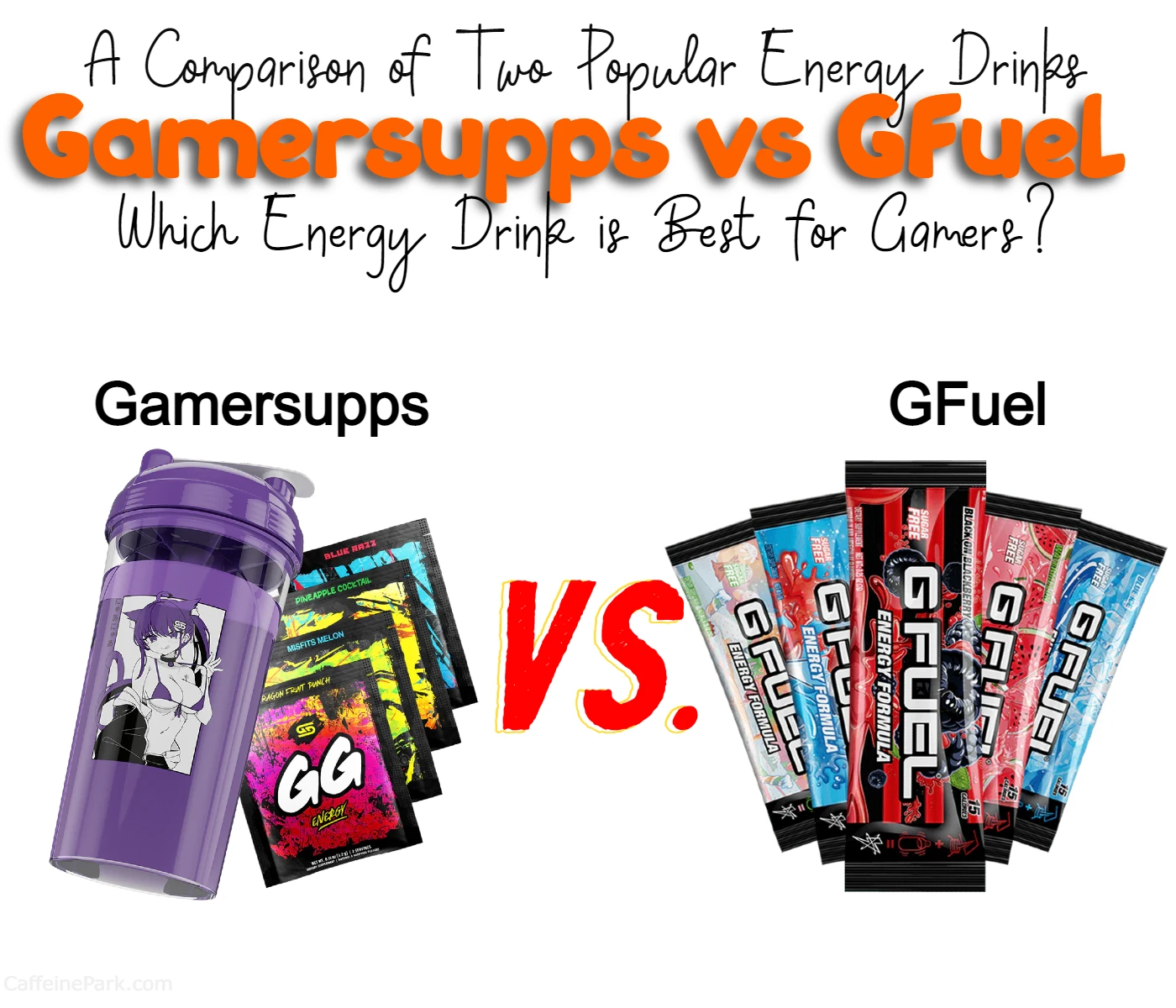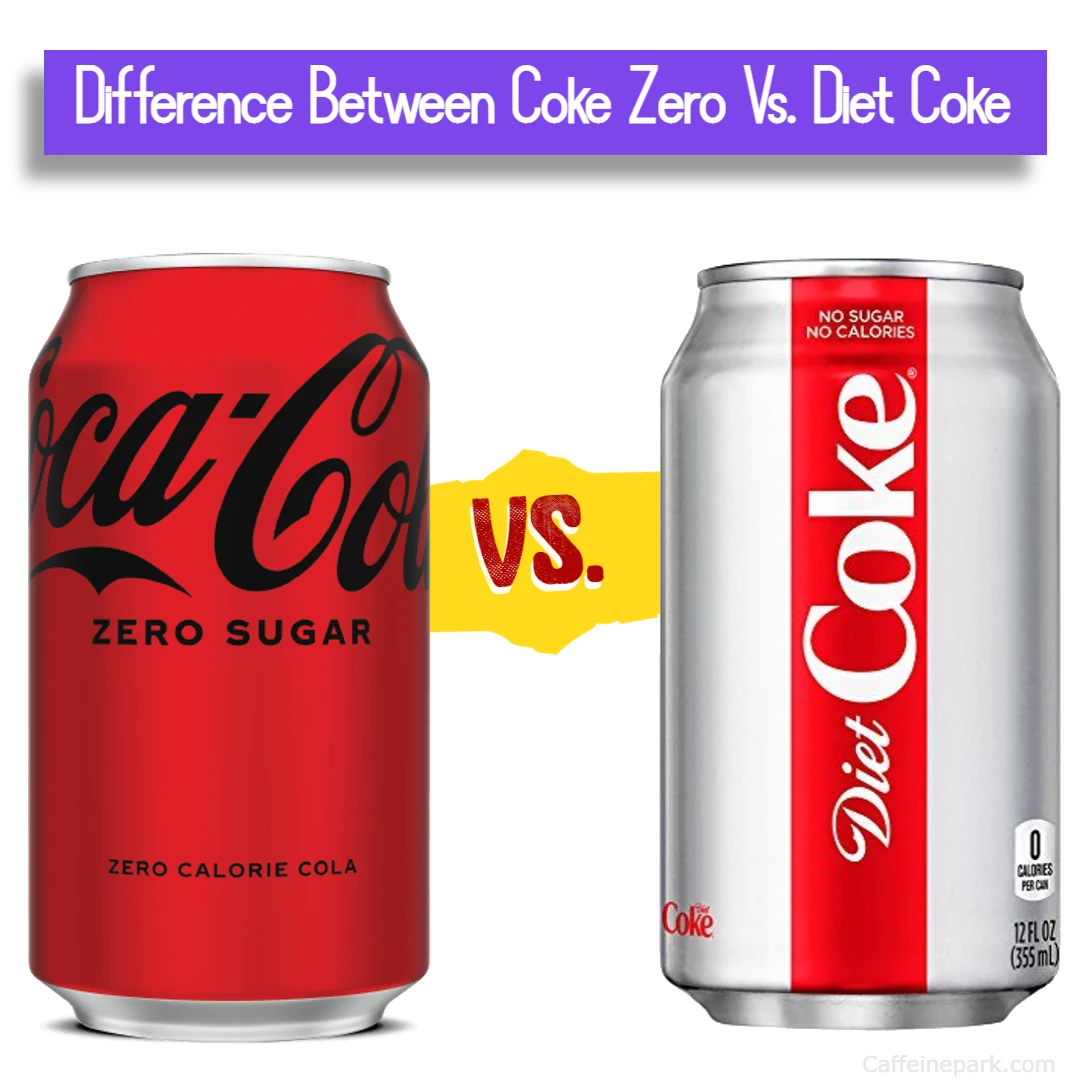
Hi there! Let me tell you about the difference between Diet Coke and Coke Zero. These two drinks are both low-calorie alternatives to regular Coca-Cola, but they have some important differences in their ingredients and flavors.
The Origins of Diet Coke and Coke Zero
Diet Coke was first introduced in 1982 as a sugar-free alternative to Coca-Cola. It quickly became popular among people who wanted to enjoy the taste of Coke without the extra calories. The formula for Diet Coke was based on the original Coca-Cola recipe but with artificial sweeteners instead of sugar.
Coke Zero, on the other hand, was introduced much later, in 2005. It was designed to appeal to young men who wanted a low-calorie soft drink that still had a bold, full flavor. Unlike Diet Coke, Coke Zero was not based on the original Coca-Cola recipe, but rather on a completely new formula.
Comparison of Coke Zero vs Diet Coke
Coke Zero and Diet Coke are both low-calorie, sugar-free carbonated soft drinks produced by The Coca-Cola Company. However, there are some key differences between the two products.
| Comparison Items | Coke Zero | Diet Coke |
|---|---|---|
| Manufacturer | The Coca-Cola Company | The Coca-Cola Company |
| Introduced | 2005 | 1982 |
| Targeted at | Young adult males | Women |
| Flavors and Variants | Coke Zero, Coca-Cola Cherry Zero, Coca-Cola Vanilla Zero, Caffeine Free Coca-Cola Zero, Coca-Cola Lime Zero | Diet Coke, Diet Coke Caffeine-Free, Diet Coke with Lemon, Diet Coke with Lime, Diet Raspberry Coke, Diet Black Cherry Vanilla Coke, Diet Coke Sweetened with Splenda, Diet Coke Plus |
| Ingredients | Carbonated water, caramel color, phosphoric acid, aspartame, potassium benzoate, natural flavors, potassium citrate, acesulfame potassium, caffeine | Carbonated water, caramel color, aspartame, phosphoric acid, potassium benzoate, natural flavors, citric acid, caffeine |
| Taste | Similar to regular Coke | Diet coke does not taste like regular Coke. |
| Sweetener | A blend of aspartame and acesulfame-K | A blend of aspartame and acesulfame-K |
| Food Acid | Potassium Citrate | Citric acid |
| Calories | 0 | 0 |
| Fat (g) | 0 | 0 |
| Carbs (g) | 0 | 0 |
| Protein (g) | 0 | 0 |
| Caffeine | 9.6 mg per 100 ml | 12.8 mg per 100 ml |
| Slogans | Real Coca-Cola Taste AND Zero Calories; Great Taste, Zero Sugar | Always Great Taste; Just for the Taste of It |
| Main Competitor | Pepsi Max | Diet Pepsi |
History of Coke Zero and Diet Coke:
Coke Zero and Diet Coke are both products of The Coca-Cola Company, a multinational beverage corporation based in Atlanta, Georgia. The Coca-Cola Company is one of the largest and most well-known companies in the world, and it has a long and storied history that dates back more than 130 years.
The Coca-Cola Company was founded in 1886 by John Pemberton, a pharmacist in Atlanta, Georgia. Pemberton originally formulated Coca-Cola as a tonic for headaches and other ailments, and he sold it at his pharmacy as a syrup that was mixed with carbonated water to create a refreshing drink. Coca-Cola quickly gained popularity and became a household name, and it is now sold in more than 200 countries around the world.
Coke Zero was introduced in 2005 as a sugar-free alternative to regular Coca-Cola that would appeal to men. The drink was formulated to have a flavor that was similar to regular Coca-Cola but without calories or sugar. Coke Zero was an immediate success and quickly became a popular alternative to regular Coca-Cola for those looking to cut back on calories and sugar.
Diet Coke, on the other hand, has a long history. It was introduced in 1982 as a low-calorie alternative to regular Coca-Cola. Like Coke Zero, Diet Coke was formulated to have a flavor that was similar to regular Coca-Cola but without calories or sugar. Diet Coke quickly gained popularity and became one of the most successful diet sodas on the market. It is now sold in many countries around the world and is the third most popular carbonated soft drink in the United States.
The Nutritional Information for Diet Coke and Coke Zero
Diet Coke and Coke Zero are both low-calorie beverages, but they do have slightly different nutritional information. Diet Coke contains 0 calories, 0 grams of fat, 0 grams of sugar, and 40 milligrams of sodium per 12-ounce can. Coke Zero also contains 0 calories and 0 grams of sugar, but it has slightly more sodium than Diet Coke, with 45 milligrams per 12-ounce can.
It’s worth noting that both Diet Coke and Coke Zero are artificially sweetened, which means they may not be the best choice for everyone. Some people have concerns about the safety of artificial sweeteners and may prefer to stick with beverages that use natural sweeteners like sugar or honey.
Coke Zero contains the following nutrients per 12-ounce (355 mL) serving:
- 0 calories
- 0 grams of sugar
- 40 mg of sodium
- 0 grams of carbohydrates
- 0 grams of protein
On the other hand, Diet Coke contains the following nutrients per 12-ounce serving:
- 0 calories
- 0 grams of sugar
- 45 mg of sodium
- 0 grams of carbohydrates
- 0 grams of protein
As you can see, Coke Zero and Diet Coke have very similar nutritional profiles, with only slight differences in sodium content.
Ingredients:
Coke Zero and Diet Coke also have some differences in their ingredients.
Coke Zero is made with the following ingredients:
- Carbonated water
- Caramel color
- Phosphoric acid
- Aspartame
- Potassium benzoate
- Natural flavors
- Potassium Citrate
- Acesulfame potassium
On the other hand, Diet Coke is made with the following ingredients:
- Carbonated water
- Caramel color
- Aspartame
- Phosphoric acid
- Potassium benzoate
- Natural flavors
- Citric acid
- Caffeine
As you can see, Coke Zero and Diet Coke have some similarities in their ingredients, but they also have some differences. Coke Zero contains more types of sweeteners (aspartame and acesulfame potassium) than Diet Coke (which only contains aspartame), and it also contains potassium citrate, which is not present in Diet Coke.
Taste:
Despite having some similarities in their ingredients, Coke Zero and Diet Coke have some differences in their taste. Many people describe the taste of Coke Zero as being more similar to regular Coca-Cola, while Diet Coke has a slightly different, more citrus-like flavor. This difference in flavor is due to the inclusion of citric acid in Diet Coke, which is not present in Coke Zero.
Caffeine Content:
Coke Zero and Diet Coke both contain caffeine, which is a naturally occurring stimulant found in many foods and drinks. Caffeine is a central nervous system stimulant that can help improve mental alertness and concentration, but it can also have some negative side effects if consumed in excess.
Here is the caffeine content of Coke Zero and Diet Coke per 12-ounce (355 mL) serving:
- Coke Zero: 34 milligrams
- Diet Coke: 46 milligrams
As you can see, Diet Coke contains slightly more caffeine than Coke Zero. However, it is important to note that the caffeine content of these drinks can vary slightly depending on the size of the serving and the specific product.
In general, the recommended daily intake of caffeine for adults is up to 400 milligrams per day. Consuming more than this amount can lead to negative side effects like insomnia, jitters, and increased heart rate. It is important to be aware of your caffeine intake and to consume it in moderation to avoid negative side effects.
Packaging and availability:
Coke Zero and Diet Coke are also available in different packaging options and are sold in different countries.
Coke Zero is available in a variety of sizes, including 12-ounce cans, 20-ounce bottles, and 2-liter bottles. It is also available in a Cherry flavor. Coke Zero is sold in many countries around the world, including the United States, Canada, and the United Kingdom.
Diet Coke, on the other hand, is available in a variety of sizes, including 7.5-ounce mini cans, 12-ounce cans, and 20-ounce bottles. It is also available in several flavors, including Original, Cherry, Lime, Mango, and Feisty Cherry. Diet Coke is sold in many countries around the world, including the United States, Canada, and the United Kingdom.
Popularity:
Coke Zero and Diet Coke are both popular carbonated soft drinks, but Diet Coke is generally more popular than Coke Zero. According to data from the Beverage Marketing Corporation, Diet Coke is the third most popular carbonated soft drink in the United States, behind only Coca-Cola and Pepsi. Coke Zero, on the other hand, is ranked as the sixth most popular carbonated soft drink in the United States.
Health considerations:
It is important to note that while Coke Zero and Diet Coke are low in calories and sugar, they are not necessarily healthy drinks. Both drinks contain artificial sweeteners, which have been the subject of controversy and debate when it comes to their health effects.
Aspartame, which is present in both Coke Zero and Diet Coke, is a low-calorie artificial sweetener that has been approved for use by the Food and Drug Administration (FDA) and other regulatory agencies around the world. However, some studies have suggested that aspartame may have negative effects on health, including an increased risk of cancer, headaches, and other side effects. However, these studies have generally been small and have not been able to establish a clear link between aspartame and negative health outcomes.
Acesulfame potassium, which is present in Coke Zero but not Diet Coke, is another artificial sweetener that has been approved for use by the FDA and other regulatory agencies. However, like aspartame, acesulfame potassium has also been the subject of controversy and debate when it comes to its potential health effects. Some studies have suggested that acesulfame potassium may have negative effects on health, including an increased risk of cancer, but these studies have generally been small and have not been able to establish a clear link between acesulfame potassium and negative health outcomes.
It is important to note that while some studies have suggested that artificial sweeteners may have negative health effects, the overall body of scientific evidence does not support these claims. Most regulatory agencies, including the FDA, have concluded that artificial sweeteners are safe for consumption in moderate amounts. However, as with any food or drink, it is important to consume artificial sweeteners in moderation as part of a balanced diet.
Marketing Differences Between Diet Coke and Coke Zero
While both Diet Coke and Coke Zero are low-calorie alternatives to Coca-Cola, they have been marketed in slightly different ways. Diet Coke, for example, has been marketed toward women since its introduction in the 1980s. Its branding often features sleek, modern designs and advertisements featuring glamorous women enjoying a cold can of Diet Coke.
Coke Zero, on the other hand, has been marketed toward men. It’s branding often features more rugged, masculine designs and advertisements featuring action and adventure. For example, a famous Coke Zero commercial from 2009 features a man on a motorcycle jumping over a ramp and performing stunts while drinking a can of Coke Zero.
Alternatives to Coke Zero and Diet Coke:
If you are looking for a low-calorie or sugar-free alternative to Coke Zero and Diet Coke, there are several other options available. Some alternatives to consider include:
- Water: Water is a natural, calorie-free drink that can help keep you hydrated and is an excellent alternative to sugary or artificially sweetened beverages.
- Unsweetened tea or coffee: Both tea and coffee are calorie-free when consumed without added sugar or sweeteners.
- Sparkling water: Sparkling water is flavored, carbonated water that is often sweetened with natural sweeteners like fruit juice or stevia. It can be a good alternative to soda if you are looking for a flavored, carbonated drink that is lower in calories and sugar.
- Fruit juice: Some fruit juices can be high in calories and sugar, but there are also many options available that are low in calories and sugar. Look for 100% fruit juice that is unsweetened or sweetened with natural sweeteners like stevia.
- Coconut water: Coconut water is a naturally sweet, low-calorie beverage that is rich in electrolytes and other nutrients. It can be a good alternative to soda if you are looking for a flavored drink that is low in calories and sugar.
In conclusion, Coke Zero and Diet Coke are low-calorie, sugar-free carbonated soft drinks that have some differences in their ingredients, taste, and marketing. While both drinks contain artificial sweeteners, the overall body of scientific evidence does not support claims that artificial sweeteners are harmful to health when consumed in moderate amounts. If you are looking for a low-calorie or sugar-free alternative to Coke Zero and Diet Coke, there are several other options available, including water, unsweetened tea or coffee, sparkling water, fruit juice, and coconut water.
Which One Should You Choose?
So, which one should you choose: Diet Coke or Coke Zero? It really depends on your personal taste preferences. If you’re looking for a low-calorie cola that has a slightly sweeter, lighter taste, then Diet Coke might be the way to go. On the other hand, if you want a low-calorie cola with a bolder, more full-bodied flavor, then Coke Zero might be more up your alley.
Ultimately, both Diet Coke and Coke Zero are great options if you’re trying to cut down on your sugar and calorie intake without sacrificing the taste of a cold, refreshing soft drink. Just be sure to enjoy them in moderation, as excessive consumption of any sweetened beverage can have negative health effects.
Conclusion
In summary, while both Diet Coke and Coke Zero are low-calorie alternatives to Coca-Cola, they have some important differences in their ingredients, flavors, and marketing. Diet Coke uses aspartame as its sweetener, while Coke Zero uses a blend of aspartame and Ace-K. Diet Coke has a slightly sweeter, lighter taste, while Coke Zero has a bolder, more full-bodied flavor. Both drinks come in a variety of flavors, and both are great options for those who are looking to cut down on their sugar and calorie intake.
Ultimately, the choice between Diet Coke and Coke Zero comes down to personal taste preferences. So why not try them both and see which one you like best? And remember, no matter which one you choose, it’s always a good idea to enjoy sweetened beverages in moderation.
FAQs
No, both Coke Zero and Diet Coke are sugar-free. They are sweetened with artificial sweeteners (aspartame and acesulfame potassium in Coke Zero, and aspartame in Diet Coke) rather than sugar.
Yes, both Coke Zero and Diet Coke are considered to be gluten-free. They do not contain any ingredients that are derived from wheat, barley, or rye, and they do not contain gluten.
Yes, both Coke Zero and Diet Coke are considered to be vegan. They do not contain any animal-derived ingredients and are suitable for vegans to consume.
Yes, both Coke Zero and Diet Coke are Kosher. They are certified Kosher by the Union of Orthodox Jewish Congregations of America (OU).
Coke Zero and Diet Coke are not specifically formulated for children and are not recommended for children to drink. Both drinks contain caffeine, which can have negative effects on children’s developing bodies and brains. It is generally recommended that children consume only limited amounts of caffeine. Children who consume large amounts of caffeine may experience negative side effects like insomnia, jitters, and increased heart rate.
In terms of nutritional content, there is not a significant difference between Coke Zero and Diet Coke. Both drinks are low in calories and sugar and do not provide any significant amounts of nutrients. However, Coke Zero contains a blend of artificial sweeteners (aspartame and acesulfame potassium), while Diet Coke only contains aspartame. Some studies have suggested that artificial sweeteners may have negative effects on health, but the overall body of scientific evidence does not support these claims. Both Coke Zero and Diet Coke should be consumed in moderation as part of a balanced diet.
Coke Zero and Diet Coke are both low in calories and sugar, so they can potentially be a helpful part of a weight loss plan if consumed in moderation. However, it is important to note that these drinks are not a replacement for a healthy diet and regular exercise.
To lose weight, it is important to create an energy deficit by burning more calories than you consume through a combination of diet and exercise. Simply drinking low-calorie or sugar-free beverages like Coke Zero or Diet Coke is not a guarantee of weight loss.
Coke Zero and Diet Coke are both low in calories and sugar compared to regular Coca-Cola, which contains around 140 calories and 34 grams of sugar per 12-ounce serving. However, Coke Zero and Diet Coke both contain artificial sweeteners, which have been the subject of controversy and debate when it comes to their health effects.
While some studies have suggested that artificial sweeteners may have negative effects on health, the overall body of scientific evidence does not support these claims. In terms of nutritional content, Coke Zero, and Diet Coke are generally considered to be healthier alternatives to regular Coca-Cola. However, it is important to consume all sugary and artificially sweetened beverages in moderation as part of a balanced diet.
Read More:
